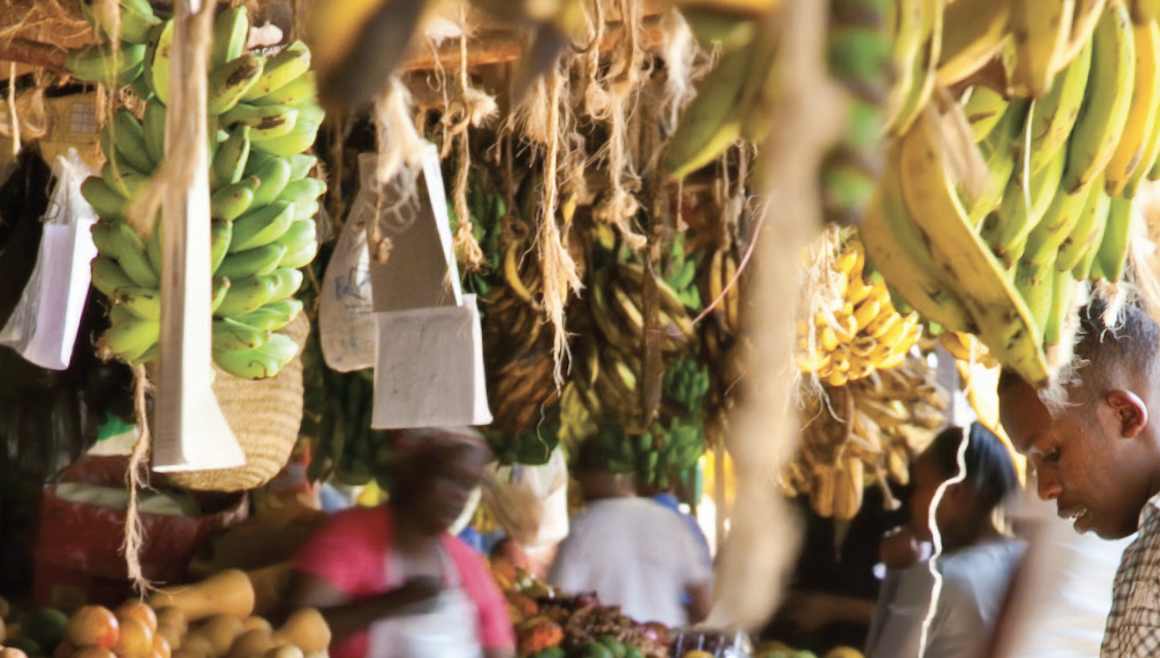A recipe for healthy diets in Africa
Cross-sector collaborations are the key ingredient to good nutrition across Africa, which provides better prospects for families across the continent to thrive and live productive, healthy lives
The 2020 State of Food Security and Nutrition in the World Report, released by the Food and Agriculture Organization, reveals that approximately 57% of the population in sub-Saharan Africa cannot afford a healthy diet. Sadly, COVID-19 has only exacerbated this reality, given the rising food prices linked to disruptions in local and global food supply and distribution chains, coupled with job losses and declines in remittances. Urgent collaborative action from key actors in the public, private and non-profit sectors is required to ensure the availability and affordability of nutritious food for the most vulnerable people in our communities and countries during and beyond the pandemic.
Healthy diets are characterised by a predominantly plant-based diet, which includes ‘protective’ foods such as fruits, vegetables and whole grains, a diversified protein supply, and reduced consumption of sugar, salt and highly processed foods. Sadly, the costs of such a diet currently exceed the $1.90 household poverty line in most African countries, a line linked to a range of structural, infrastructural and political economy challenges. Unproductive, fragmented and unstructured value chains, with prohibitive production prices, increase the costs of essential foods. In addition, post-harvest losses of fruits and vegetables, critical for healthy diets, are estimated at between 20% and 60%, depending on the value chain, due to poor handling, inadequate storage and distribution infrastructure, with limited cold chain networks. Small- and medium-sized enterprises, which are responsible for providing more than 80% of the food consumed in Africa, and are the engines of growth and innovation in the nutrition landscape, struggle for survival due to the absence of support systems, an enabling environment, funding, training and market linkages. There is also limited coordination and cooperation among the key actors who should work together to drive cohesive and integrated action to ensure nutrition security at local, state, federal and regional levels.
Nutrition security is urgent
The COVID-19 pandemic has reinforced the critical role that nutritious diets play in boosting immune systems and ensuring human survival. As a result, there is a real urgency for immediate and coordinated action steps to ensure the availability and affordability of nutritious food for Africa’s most vulnerable.
First, national, state and city governments must engage cross-sector teams from the ministries of health, agriculture, water resources, science and technology, the environment, trade and investment, gender, education, and financing landscapes to create and align on cohesive policy frameworks that ensure nutrition security. These frameworks must include investments in public infrastructure, such as energy, storage, road, rail and cold chain networks, to reduce the operating costs and losses faced by farmers, aggregators, processors and distributors in priority value chains such as legumes, nuts, fruits and vegetables. African governments must create incentives for companies to invest in the production and sale of nutritious food, and to foster consumer demand for healthier food, leveraging taxes as incentives or disincentives. The South African government’s introduction of the health promotion levy on sugary beverages in 2018, which induced beverage companies to reduce their use of sugar by 30%, is an example worthy of emulation. In addition, governments must fund national research institutions to identify and commercialise alternative and affordable protein sources, including insect-based options.
The African private sector must invest in building shorter, more efficient and effective local supply chains to address the high rates of post-harvest losses, but also minimise nutrient loss during the process of transporting, processing, packaging and retailing food. They must also comply with mandatory fortification standards for processed food set by various governments. In addition, they must invest in research and technology to identify innovative approaches for processing and packaging nutritious food, and to minimise the inclusion of unhealthy ingredients. Entrepreneurs must also actively engage in hubs such as NourishingAfrica.com and initiatives such as the SUN Business Network to obtain the funding, technical support, training and market connections that they need to scale their businesses.
Non-profit organisations, faith-based organisations, the media and civil society must hold governments accountable for setting standards and creating an enabling environment that fosters the emergence of a vibrant ecosystem that drives the availability and affordability of nutritious food. They must also hold private sector actors responsible for ensuring compliance with these standards and celebrate SMEs championing innovations in the landscape. In addition, non-profits should promote the cultivation, processing and consumption of neglected and underutilised indigenous plant species, which have both nutritional and environmental benefits. The media and faith-based organisations should play a critical role in raising consumer awareness and empowering communities to make more informed food choices and demand nutritious food.
Ultimately, the collective action of these key actors will foster the availability and affordability of nutritious food, whichwill eventually ensure healthier families, who have a better chance of surviving future health p andemics and living productive lives.












